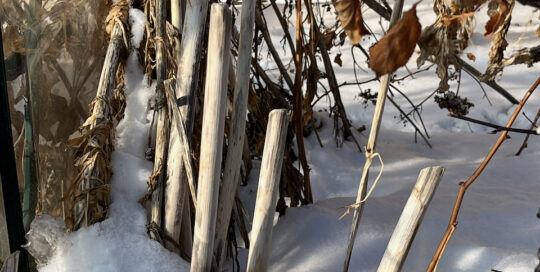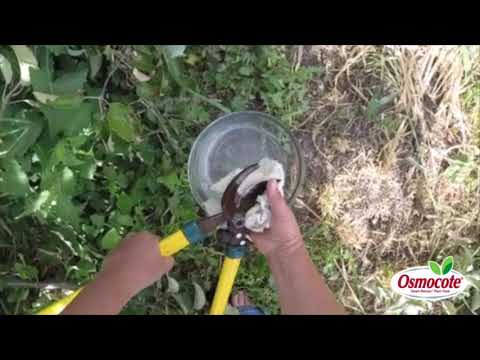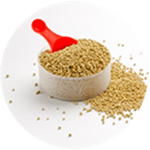Be Proactive About Black Bears
Views: 3174
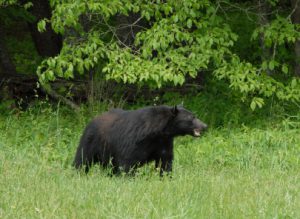
When I lived outside of West Glacier, Montana, we had grizzlies in the neighborhood. For the most part they weren’t a problem. In the decade I lived there, a bear did knock over the bee hives once, and on a single occasion I clicked on the porch light (in the middle of the night) to see a grizzly licking the grill right next to the door. But I never had issues with them touching anything in the garden or doing much else. Black bears are a different story.
That’s not the case with black bears in many parts of the country. There are a whole lot more black bears in the States than grizzlies. As a matter of fact, the Washington State University Extension sites approximately 300,000 black bears in the country versus 2,000 to 3,000 grizzlies. Black bears are bound to impact more people.
Bearproofing Your Home and Garden
It’s our responsibility to take care of the garden and anything that might attract bears before they get into trouble. In some areas, relocation is an option. When it’s not, managers have to consider euthanasia. If there are black bears in your area, there’s plenty you can do before things get to that point.
Garden
Black bears will raid the garden. Why wouldn’t they? When there’s a bounty of fresh vegetables that are really, really easy to eat, it only makes sense that they’d take advantage of the food source.
One thing you can do is to keep up with harvesting. Rotting vegetables is a big invitation to nearby bears. They’re also attracted to the smell of blood meal, so avoid applying this amendment if you’re in bear country.
Think about the garden’s location, as well. Try to keep it away from the perimeter of the property, particularly if you’re in a wooded or dense area, since that provides cover for the bear to be able to raid the garden with relative safety. And, if it’s an ongoing issue, you might have to resort to an electric fence. A few strands of well-placed electric, or even the poultry netting, are a decent discouragement.
This applies to orchards, too. Keep the fruit harvested on a regular basis, and pick up anything that drops.
Bird feeders (not for black bears!)
It’s great to feed the birds, but not so wonderful to cause bears to get into trouble. Take them down completely during the spring to fall, or suspend them with a puleyl system in a location where the bears cannot reach them. And you want to keep it clean underneath the feeders, as well. Dropped and kicked out grains and seeds are attractants to hungry bears.
As for hummingbird feeders, they’re just like shots of Mountain Dew for bears. Mmmmm, that’s good stuff. Instead of the sugar water feeders, hang baskets with the plants hummingbirds like. They’ll use them, plus they have to be better for the birds rather than the white sugar (or red dye!).
Compost bins
Where bears are a problem, don’t add food scraps. Yes, it’s good to utilize the vegetable waste, but if there are bears they’ll turn your compost heap for you. You can compost them inside if you really want to use them.
Trash bins
In bear country it’s common to take the trash out to the curb at night, only to find it strewn all over in the morning. If this is the case, you need to keep your trash cans locked in the shed or the garage until the day of the pickup.
Honeybees
As we all know, bears like honey. But they also like the protein rich larva in the hive. If you have hives, run electric around them. It’ll save the bear from a bad situation, as it’ll save you a lot of money since they not only eat the live bees, they usually destroy the equipment.
These are just a few tips to keep bears from being a bother. Just remember, they’re doing what they do best. You need to stay one step ahead of them to avoid a serious incident.
(The photo of the black bear is from istock.com copyright visionsofmaine.)
Meet Amy Grisak
Amy is a freelance author and photographer in Great Falls, MT who specializes in gardening, foods, and sustainable agriculture. She provides information on every kind…
Amy's Recent Posts
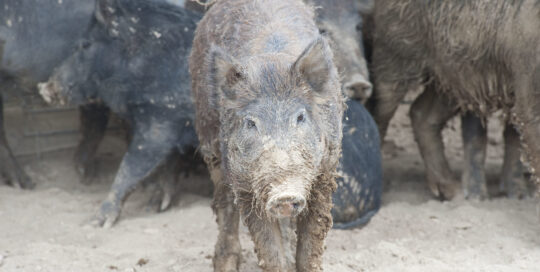
This Little Piggy is a Problem: Dealing with Feral Hogs
